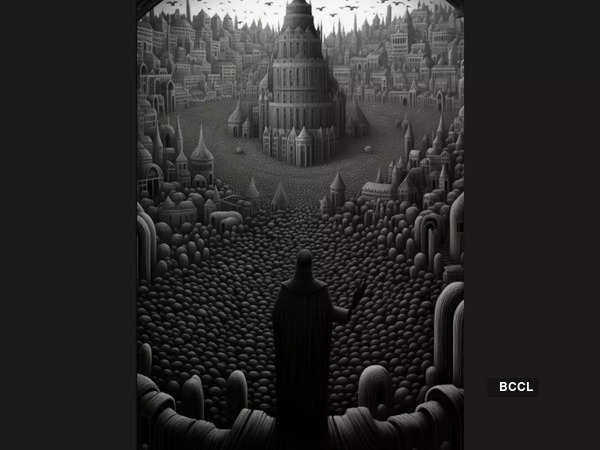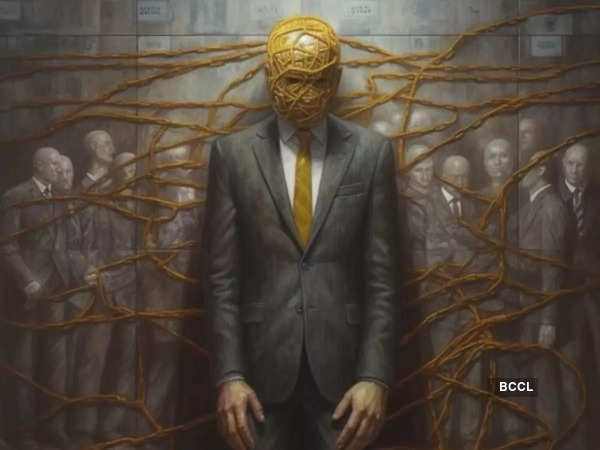Meaning of the sentence:
The sentence “It was a bright cold day in April, and the clocks were striking thirteen” from George Orwell’s ‘1984’ serves as the opening line of the novel and immediately sets the tone for the dystopian world in which the story takes place.
“Bright cold day in April”: This phrase juxtaposes contradictory elements – “bright” and “cold” – to create a sense of discomfort and unease. It suggests that although the day may seem pleasant on the surface, there is an underlying harshness and lack of warmth in this world.
“Clocks were striking thirteen”: This is perhaps the most striking part of the sentence. In a normal, functioning society, clocks would typically strike numbers from one to twelve to indicate the time on a 12-hour clock. However, in the world of ‘1984,’ the fact that the clocks are striking thirteen immediately signals that something is profoundly wrong. It’s a subtle but powerful indicator that this is not the familiar reality we know.
Overall, this sentence serves as an introduction to the oppressive and disorienting nature of the dystopian society in ‘1984.’ It hints at a world where even the most basic aspects of daily life are controlled and distorted by a totalitarian regime, where reality is manipulated, and where the ordinary is made strange and unsettling. It sets the stage for the reader to explore the themes of surveillance, manipulation, and the distortion of truth that are central to the novel.
AI-generated imagePhoto credit: Midjourney/ @SPYDNB
Analyzing the book’s title ‘1984’:
The title of George Orwell’s novel, ‘1984,’ is significant and serves several purposes in the context of the story and its themes. Here are some key aspects to consider when analyzing the title:
Temporal Setting: ‘1984’ is a dystopian novel that envisions a bleak and oppressive future. By setting the story in the year 1984, Orwell creates a sense of immediacy and suggests that the events he describes are not far-fetched but could potentially occur in the near future. The title serves as a warning about the dangers of totalitarianism and the erosion of individual freedoms.
Symbolism: The numbers in the title, particularly ‘1984,’ are symbolic. They represent a specific point in time and, in a broader sense, the idea of a fixed, unchangeable reality imposed by the Party in the novel. The year 1984 becomes a symbol of the regime’s control over history and the manipulation of truth.
Irony: The title is ironic in the sense that, when the book was published in 1949, 1984 was still a distant future. Orwell uses this irony to highlight the potential consequences of political oppression and the dangers of unchecked government power. He suggests that if society does not guard against totalitarianism, the future could become a nightmarish reflection of the Party’s control.
Totalitarianism and Surveillance: The title hints at the pervasive surveillance and control mechanisms in the novel. In 1984’s dystopian world, the government, led by Big Brother, monitors every aspect of citizens’ lives, emphasizing the loss of privacy and personal freedom.

AI-generated imagePhoto credit: Midjourney/ @evan.just.evan
Dystopian Themes: ‘1984’ explores themes such as censorship, thought control, propaganda, and the manipulation of truth. The title encapsulates these themes by setting the story in a year that has become synonymous with a nightmarish vision of a totalitarian future.
Timelessness: While the novel’s title references a specific year, the themes it explores are timeless and continue to be relevant in discussions about government surveillance, propaganda, and the erosion of civil liberties. The title’s enduring relevance highlights the enduring nature of the novel’s warnings.
In summary, the title ‘1984’ is not merely a date but a symbolic and cautionary element of the novel. It encapsulates the story’s dystopian themes, serves as a warning about the dangers of totalitarianism, and continues to resonate with readers as a reminder of the importance of protecting individual freedoms and truth in the face of oppressive regimes.
Encapsulation of the entire book:
‘1984’ is a dystopian novel set in a totalitarian society ruled by the Party, led by the enigmatic figure known as Big Brother. The story follows Winston Smith, a middle-aged Party member who begins to question the oppressive regime and its control over every aspect of people’s lives.
Key Elements:
Totalitarianism: The Party exercises complete control over the citizens of Oceania, using propaganda, surveillance, and thought control to maintain its power. The concept of “Newspeak” is introduced, a language designed to eliminate rebellious thoughts by limiting expression.
Surveillance State: The government watches its citizens through telescreens, hidden microphones, and the Thought Police. There is no privacy, and even personal thoughts and feelings are considered crimes.
Winston Smith: The protagonist, Winston, works at the Ministry of Truth, altering historical records to match the Party’s propaganda. He becomes disillusioned with the regime and starts keeping a secret diary, a dangerous act of rebellion.
Julia: Winston’s love interest and fellow rebel, Julia, shares his disdain for the Party. Their relationship becomes a symbol of resistance and personal freedom in a society where love is discouraged.
Room 101: A place of ultimate torture and re-education, where individuals are subjected to their worst fears and phobias, making them betray their beliefs.
Thoughtcrime: The act of even thinking rebellious or disloyal thoughts is considered a crime, and the Thought Police relentlessly pursue those who commit thoughtcrime.

AI-generated imagePhoto credit: Midjourney/ @PlasteredDragon
O’Brien: A high-ranking Party member who initially appears sympathetic to Winston and Julia’s cause but ultimately betrays them, revealing the true extent of the Party’s control and cruelty.
The novel explores themes of totalitarianism, censorship, the loss of individuality, and the consequences of state control on personal freedom. It serves as a warning about the dangers of authoritarianism and the manipulation of truth.
‘1984’ remains a classic and thought-provoking work of dystopian literature that continues to resonate with readers due to its relevance to contemporary issues related to surveillance, government control, and the erosion of civil liberties.
DISCLAIMER: This content is generated by ChatGPT.
